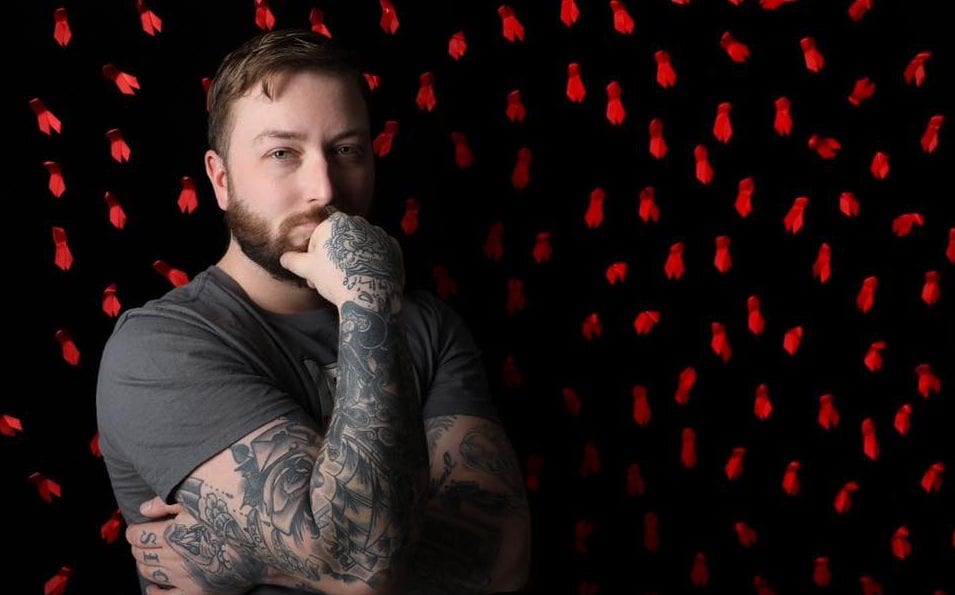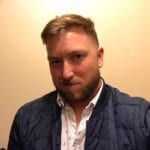On June 28, 2005, I was tested for HIV at a walk-in clinic on the University of Ottawa’s campus.
I’d been suffering from a persistent feeling of fatigue, loss of appetite and diarrhea. The doctor theorized that I might have mono, and recommended I undergo blood work. I requested an HIV test, because I knew that having flu-like symptoms can sometimes be suggestive of HIV infection.
At 22 I had begun to experiment sexually with being the bottom during anal intercourse and had sometimes allowed my partners to briefly penetrate me without condoms being used, though I never allowed my partners to ejaculate in my anus, and kept unprotected intercourse brief.
As a young gay man growing up in the fourth largest city in Canada, I knew no one who was openly HIV-positive in Ottawa. At the time I was a bartender, working at a popular queer pub, and immersed in the small but thriving gay scene there.
My social network was large, and I believed I possessed a privileged overview of my queer community from behind the vantage point of a bar top. HIV very much seemed, conflictingly, a relic of the past, and a big city problem more closely associated to Toronto or New York. As much of a cliché as it might seem, I never believed HIV was an issue I’d have to contend with.
The day after having my blood taken, I received a call from the clinic. It was important that I come in immediately and speak with a physician, they said. I arrived later that day and was told my blood work results had indicated that my platelet and white blood cell count had come back in the single digits.
They said it was most likely indicative of a laboratory error: a normal human platelet count ranges from 150,000 to 450,000 platelets per microlitre of blood, white blood cells between 4,500 and 10,000. Another series of blood work was ordered.
The next day I received another call from the clinic asking that I once again return. This time the physician I met with was alarmed. He explained my blood work results had once again indicated that my platelet count and white blood cell count was in the single digits.
White blood cells are imperative for fighting infection and remaining healthy, and platelets help clot blood, he told me. In my current state, I had no immunity and could bleed to death from a shaving nick, he explained. He identified a blood blister on my face from where I had cut myself shaving the day prior as confirmation of his fears.
The doctor called ahead to a local hospital and told them to expect me and informed them that I would need to be quarantined to minimize potential infections upon arrival. I thought he was being an alarmist. Before reporting to the hospital, I went home and did the dishes so my roommate wouldn’t come home to a mess.
For seven days I would remain in the cancer wing at Ottawa General Hospital receiving two platelet transfusions and a spinal tap. Unbeknownst to me, the doctors feared I may have had leukemia.
A week later I wound up being released from hospital with no explanation as to why my health had failed, but now feeling restored after a second platelet transfusion had re-established my counts and brought back my appetite.
In the meantime, I had passed the two-week window to be notified by Ottawa Public Health of a positive HIV diagnosis; I felt relief. I promised myself I’d take no more risks with my sexual health and continued to follow up with my family physician and hospital staff regarding my previous blood counts.
It was increasingly looking like my health troubles had been an anomaly, a blip on the radar. One doctor shrugged his shoulders and put his hands up in the air, remarking that “perhaps it was just one of those things,” insinuating the explanation was unknowable and inconsequential.
A good friend of mine was more pessimistic. “Sometimes you see the symptoms before the cause,” he told me.
Almost two months after having taken the HIV test, I received a vague yet weighted call to return to the Ottawa University campus clinic. The request to follow up with me regarding my recent hospitalization was unexpected, and made me panic; I was afraid they had found something serious in my blood work. And they had.
“I regret to inform you that you have tested positive for the HIV virus,” the doctor on duty that day informed me. “The clinic was backed up and we’ve only just now received your results.”
She handed me a wad of papers concerning my diagnosis and my eligibility to participate in numerous drug studies, documents addressed to my doctor meant to help her in convincing me to participate in medical research, not educate me in regards to my new, life-changing diagnosis. Then I walked home, stunned. I didn’t cry, or call anyone, I just put one foot in front of the other.
In 2015, model Alex Minsky, who lost his right leg in a roadside bomb in Afghanistan while serving in the US military in 2009, was featured in a YouTube video series for We Are the Mighty, a military news site. In the video, Minsky cites “getting blown up” as the best experience in his life “because it completely changed the way I see things.”
The idea that trauma may be an asset may seem counterintuitive or revisionist, but I’ve long recognized that my HIV status has positively impacted my life in many regards.
It’s saved me from having a narrow world view which I otherwise would have had as a cis, white male; led to employment opportunities in the HIV and not-for-profit sector; increased my access to resources like income tax clinics and employment service programs designed for people grappling with chronic illnesses, and provided social capital as I began to fundraise for local AIDS service organizations and receive accolades and awards in response.
It’s without a doubt negatively impacted me in each of these regards as well, from family estrangements and repeated romantic rejections to chronic fatigue that makes inflexible work weeks longer than 40 hours impossible to sustain, but I’ve come to view my HIV status as a trade-off; one that over the last decade continues to change in nature.
That’s why it’s important to contextualize my diagnosis with the retelling of its history. Advances in medical harm reduction initiatives, such as HIV prevention medications like pre-exposure prophylaxis (PrEP) and post-exposure prophylaxis (PEP, an anti-HIV medication taken after coming into contact with HIV to reduce the risk of transmission), as well as rapid HIV testing, and reports such as the 2008 Swiss statement and recent studies, which found that HIV-positive people with undetectable viral loads cannot transmit the virus through sexual contact, have altered our knowledge, attitudes and actions regarding HIV/AIDS in North America.
Those testing positive today, and thereafter, may find their experiences vastly different from my own, just as my own experiences are vastly different from those diagnosed before the invention of protease inhibitor cocktails (which reached the market in 1996), which enhanced our body’s ability to fight the virus and curbed the death toll of AIDS.
And of course there’s always the promise of a potential cure. One, that should it ever be found, would represent just as huge a personal seismic shift as receiving my positive diagnosis all those years ago.
After all this time, I wouldn’t know who I was if I no longer had HIV.


 Why you can trust Xtra
Why you can trust Xtra


